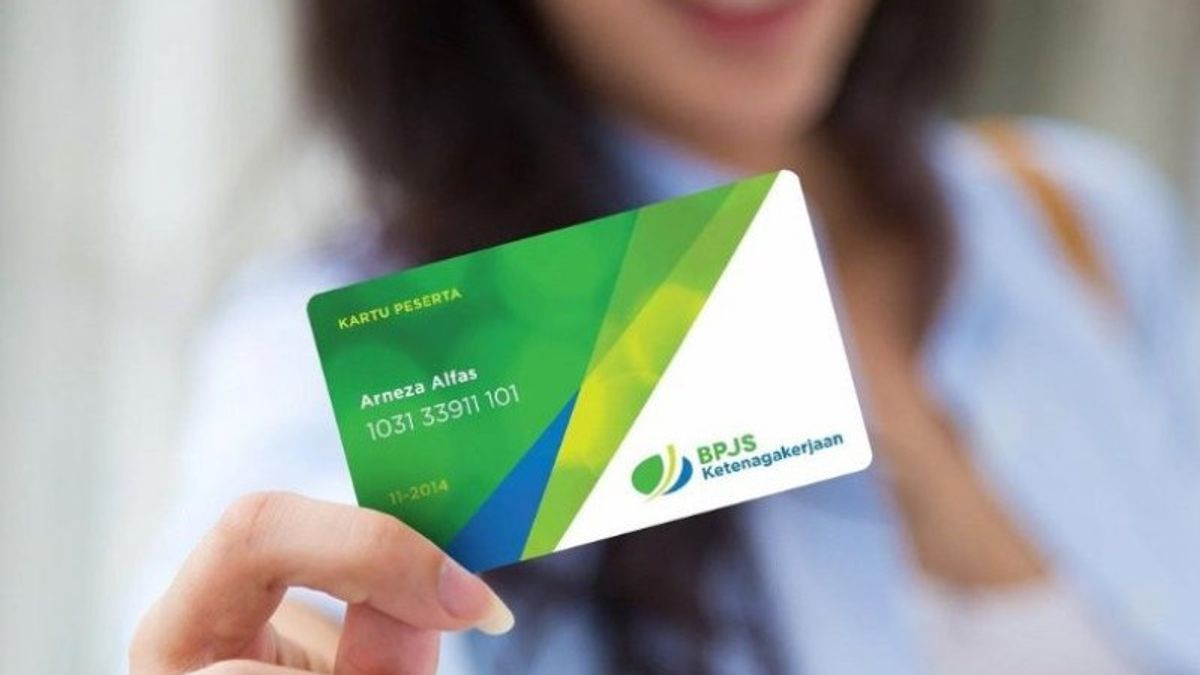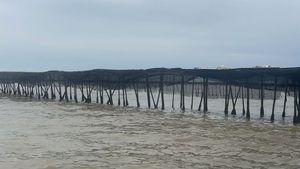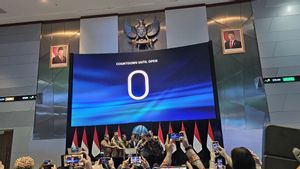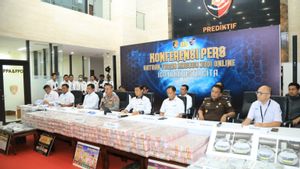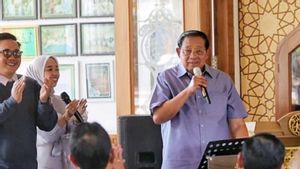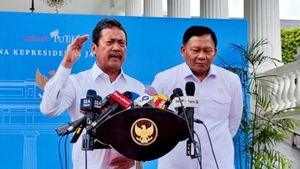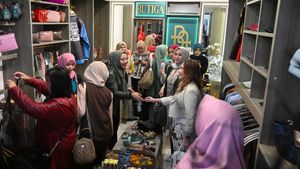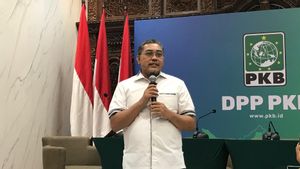JAKARTA - Secretary of the Ministry of Cooperatives and SMEs (SesKemenKopUKM) Arif R Hakim invites micro, small and medium enterprises (MSMEs) to become BPJS Employment participants.
The goal is to create an ecosystem that is protected through various benefits.
The benefits in question include old age guarantees (JHT), work accidents, monthly pensions, and death insurance.
This was conveyed in a socialization event for the implementation of the protection of employment social security programs in the micro, small and medium enterprise cooperative (KUMKM) ecosystem in Kuningan Regency.
"Thus, micro, small and medium enterprises and cooperatives get protection and comfort in their work. We hope that productivity can be even better and welfare will automatically increase," said Arif in an official statement, Sunday, September 18.
Arif also appreciated and expressed his appreciation to the Regional Government of Kuningan Regency, BPJS Ketenagakerjaan, and Bank BJB Kuningan Branch for supporting the implementation of the socialization activity.
Arif said, this activity is an implementation of the Instruction of the President of the Republic of Indonesia number 2/2021 concerning Optimizing the Implementation of the Employment Social Security Program and as a follow-up to the Cooperation Agreement between the Ministry of Cooperatives and SMEs with BPJS Employment on the Implementation of Protection of the Employment Social Security Program in the KUMKM Ecosystem.
According to Arif, Indonesia has abundant natural resource potential in various sectors.
The movement of the Indonesian economy is dominated by MSMEs who have an important role in national economic growth, as the 99 percent contributor, the majority of total business actors in Indonesia who contribute more than 60 percent to GDP and absorb 97.02 percent of the workforce, and support 14.17 percent of the contribution of the non-oil and gas export sector.
Improved MSME Competitiveness in the midst of globalization and high business competition is very important, making MSMEs must be able to face global challenges, such as increasing product and service innovations, developing human resources and technology, as well as expanding marketing areas.
"This needs to be done to increase the selling value of the KUMKM products or services themselves, especially in order to compete with foreign products that are increasingly flooding industrial and manufacturing centers in Indonesia, which is causing the current competition in the business world to be tighter," he said.
Moreover, he said, at this time KUMKM is required to be able to optimally form a system and coordinate both in a company function, or develop business functions in line with the development of information and communication technology.
Therefore, the government continues to encourage the growth of the digital economy ecosystem to increase the productivity of MSME players, both in terms of infrastructure and increasing human resources in terms of digital literacy.
This support is also needed from all parties including community communities in various regions so that more and more micro-enterprises are promoted through digitalization.
Furthermore, Arif said, the government as its role, provides access to assistance for Business Identification Numbers (NIB) as well as Business/Produk Certification (PIRT, Brand, Halal, MD distribution permit).
"We hope that business actors can have legality and certification. In the future micro-enterprises can access financing through KUR and other financial institutions," said Arif.
Arif said that empowering MSMEs is one of the priority developments in the economic sector. The existence and strategic role of MSMEs in the midst of society has become an important factor in national economic development.
"There are only two choices for MSMEs in this era of globalization, namely adaptation or death. If you want to exist and develop, then like it or not, like it or not, MSMEs must follow developments, and protect themselves and their businesses with the benefits of social security from the BPJS Employment program," said Arif.
Arif admits that currently, the participation of workers in the informal sector, as well as micro and small scale businesses in employment social security programs, tends to be still low.
However, the business community sees an opportunity to attract more informal and small-scale employee participation. MSME workers in Employment Social Security are expected to increase.
What's more, in the issuance of Permenaker Number 17/2021 concerning Amendments to the Minister of Manpower Number 35/2016 concerning Procedures for Providing, Requirements, and Types of Additional Service Benefits in the Old Age Security Program, it can be a catalyst for the participation of informal workers and MSMEs so that they can get Additional Service Benefits (MLT) in the form of housing financing sourced from investment funds for the Old Age Guarantee (JHT) program.
"Hopefully all of this can be implemented and provide benefits for KUMKM actors," said Arif.
The English, Chinese, Japanese, Arabic, and French versions are automatically generated by the AI. So there may still be inaccuracies in translating, please always see Indonesian as our main language. (system supported by DigitalSiber.id)
